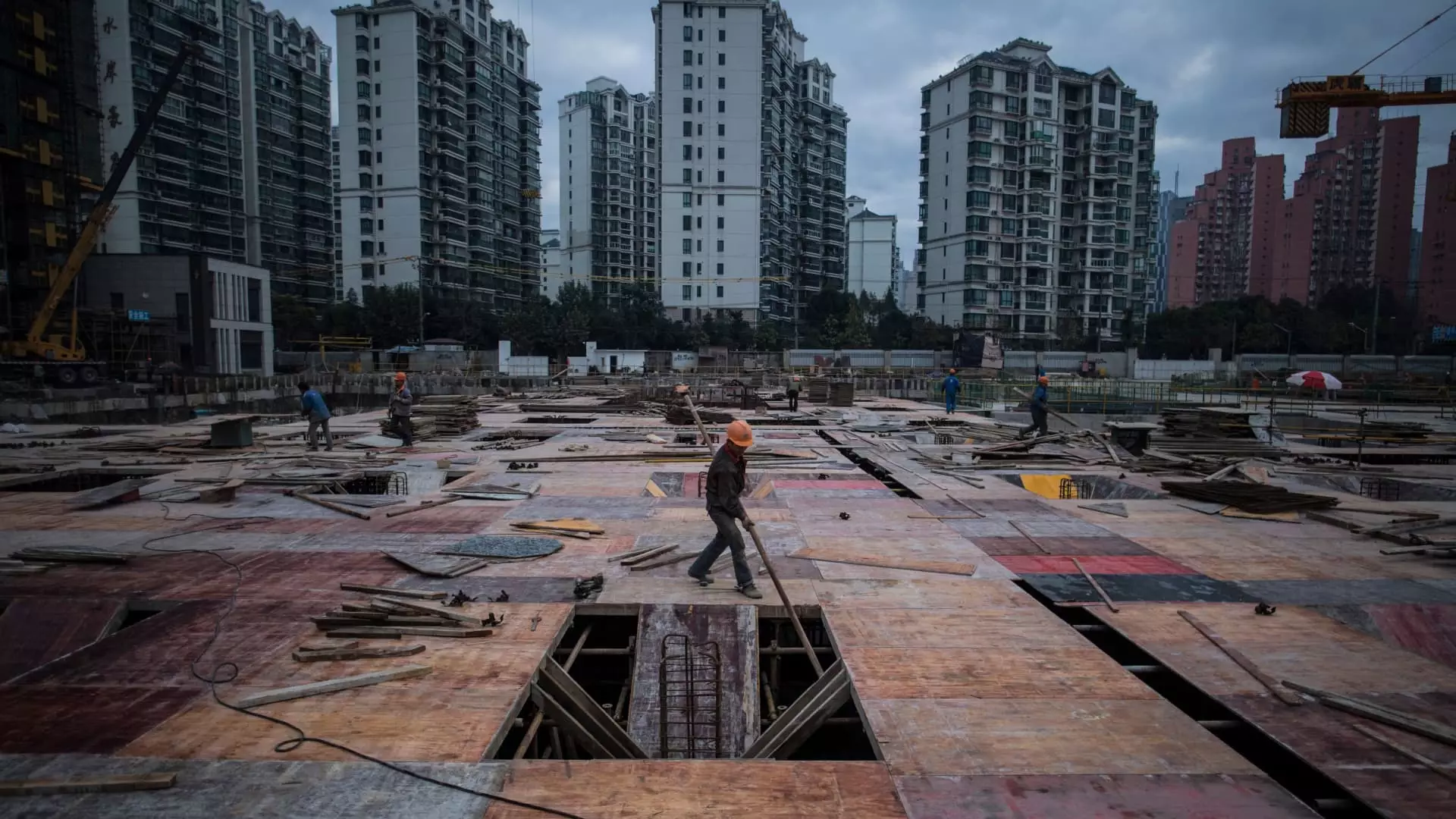China’s property market has been a focal point of concern as it grapples with declining sales and financial instability among developers. Despite the government’s recent stimulus initiatives aimed at revitalizing the sector, analysts argue that these measures are insufficient to reverse the ongoing downturn. Homebuyers’ sentiment showed a slight uptick during the recent Golden Week holiday, but this improvement appears limited to a few major cities, rendering it inadequate to reshape the broader landscape of real estate throughout the country.
The Golden Week, traditionally seen as a peak period for consumer spending, painted a somewhat paradoxical picture. While home sales in Beijing soared by 81% in floor area relative to the same holiday last year, this was an outlier among the 25 major cities examined in the report by the China Index Academy. The stark contrast became evident when viewing national statistics: the average daily transaction area for new homes plummeted by 27% when compared to the same holiday markers from the previous year.
In large tier-one cities—including Shanghai, Guangzhou, and Shenzhen—sales sank dramatically, with figures dropping between 57% to 61%. These statistics starkly highlight an unsettling trend; the property market has experienced a consistent decline in home sales since 2021, sparking questions about the long-term viability of the stimulus measures being enacted. With the average daily sales volume diminishing over the years, the 107,000 square meters sold during this holiday week appear underwhelming, especially set against the 177,000 square meters recorded in 2021.
Analysts such as William Wu of Daiwa Capital Markets caution against viewing the recent sales spike in isolation. The boost may offer temporary relief to market sentiment but lacks the robustness to foster a sustained recovery. It is vital to understand that merely focusing on short-term fluctuations may obscure a more profound underlying malaise in the sector. The home purchase order data indicates that buyers tend to increase their orders toward the end of each month, suggesting that expectations for improved sales figures in October may not reflect a genuine recovery but rather an anticipation of favorable policies or incentives.
Shen Meng from Chanson & Co. advocates for a more comprehensive evaluation of the policies that influence the property market. Sales figures should be analyzed over extended periods rather than focusing exclusively on six-day snapshots to gauge the true effectiveness of governmental interventions.
The Underlying Challenges Facing the Property Market
Despite the recently introduced easing measures—which include lowered mortgage rates, reduced average down-payment ratios, and increased home purchase quotas—challenges remain pervasive. The property sector is still grappling with mounting debts among developers and an excess of unsold inventory. Kenneth Ho from Goldman Sachs highlights the necessity for more comprehensive policies aimed at addressing these “excess inventories,” yet emphasizes a noticeable lack of substantial government action in this essential area.
While a few cities might have shown improvements in home sales, this cannot disguise the grim realities faced by struggling property developers across the nation. The continual defaults by financially beleaguered developers reflect an unchanging cycle of distress that threatens to destabilize the larger market.
While some positive indicators emerged during the Golden Week holiday in China’s property sector, they serve more as a temporary buoy rather than a harbinger of enduring recovery. The interplay of governmental stimulus measures against the backdrop of structural challenges reveals the complexity of revitalizing this critical industry. Unless there are significant and sustained efforts aimed at addressing the underlying issues of excess inventory and developer financial troubles, the potential for meaningful growth remains questionable. As the market stands poised at a crossroads, the journey ahead will require not just watchful waiting, but decisive actions to ensure a stable and lasting recovery.



Leave a Reply